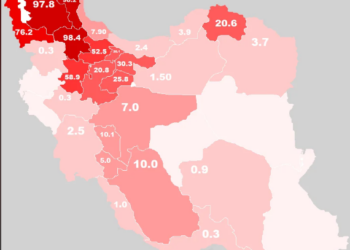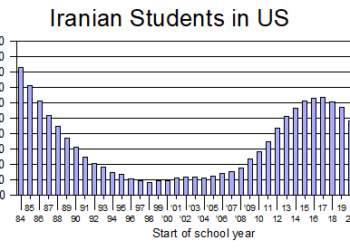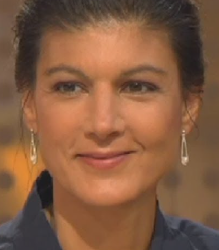that he will resign from Congress as charges of bizarre behavior and sex with a teen mounted against him.
Rep. David Wu, the first Taiwanese-born person elected to the US Congress, issued a statement saying, “I cannot care for my family the way I wish while serving in Congress and fighting these very serious allegations.
 In 2004, Republican Ameri sought to be come the first Iranian-American elected to Congress. She appeared to have an excellent chance when only a short time before the election, it was revealed that Democrat Wu had sexually assaulted a woman in college. Wu admitted everything, but said he had changed since his college days.
In 2004, Republican Ameri sought to be come the first Iranian-American elected to Congress. She appeared to have an excellent chance when only a short time before the election, it was revealed that Democrat Wu had sexually assaulted a woman in college. Wu admitted everything, but said he had changed since his college days.
Ameri sent out literature just before the vote that highlighted the sexual misconduct charge. Most voters, however, appeared to accept Wu’s explanation of youthful misconduct and Ameri did poorly in the balloting.
But the 2004 allegation was not the end. Last year, he announced that he had stopped drinking. Then he separated from his wife. In February, he admitted to receiving mental treatment after reports of bizarre behavior. Last week, The Oregonian daily reported on a sexual encounter he had with the underage daughter of a longtime fiend and campaign donor.
There will likely be a special election in a few months to fill he seat. It isn’t known if Ameri is thinking of running for the seat again. After her 2004 defeat, she spoke of running against Wu again in 2006, but she did not. She accepted an appointment in the Bush State Department instead.
Ameri acknowledged then that making her opponent’s college sex offense the center of her campaign may have backfired and driven more voters to Wu than to her.
In her 2004 concession speech, she told supporters, “I’ve been through a revolution,” referring to the Iranian revolution of 1979. “I’ve been through breast cancer,” which she survived several years ago. “If we have to wait another two years for Mr. Wu to leave, we can wait another two years.”
Ameri, now 55, began her quest with a difficult primary challenge. She rarely mentioned her Iranian birth until one of her primary opponents tried to hint that she was a supporter of the Islamic Republic. She then portrayed herself as a victim of the revolution who had found success in America. That found resonance with primary voters and Ameri forever paraded her Iranianness after that.
The fall campaign was a traditional one of staking out positions on issues and painting the opposition in negative terms until mid-October when The Oregonian ran a story revealing that Wu had tried to force sex on an ex-girlfriend in a college dorm in 1976.
Ameri then made that the central argument for why Wu should not be returned to Congress.
Robert Eisinger, chairman of the political science department at Lewis & Clark College, said that might have backfired on her. First, he said, “She came off as kind of shrill.” Furthermore, the public never learned clearly what had happened in the college dorm since the woman in question refused to discuss the incident.
Many voters also commented that the incident happened long ago and had not been followed by any (known) repeat, reinforcing Wu’s point that he learned from his errors and had remade himself.
Ameri said she knew “it was risky” to focus on the sex issue. “But it was the right thing to do. As a woman who is seeking a position of leadership, I had to stand up and say it’s not okay. It’s never okay.”
She acknowledged, “My message was disturbing. And when people find a message disturbing, they often shoot the messenger. But a man who is not capable of protecting the most fundamental right of a woman—which is her safety and security—is not fit to serve.”
Kevin Mannix, chairman of the Oregon Republican Party, told The Oregonian in 2004 that he thought Ameri’s gamble might have hurt her more than Wu. “She was within striking distance, the eight or so points that a first-time challenger hopes to bring herself in, and then this issue broke. It looks to me that there was a rebound effect here where Wu becomes the victim.”
In the end, Ameri won only 38 percent of the vote, trailing Wu by 20 percentage points, more than double the eight that Mannix said she experienced in the polls before the sex issue was raised.
Candidate financial filings showed Ameri had raised more money than any other congressional challenger but one. All the money did not show for much, however. Ameri’s 38 percent compared to 34 percent for Wu’s GOP challenger two years before and 39 percent for the Republican who ran against him four years earlier. Neither of them had much money.


















